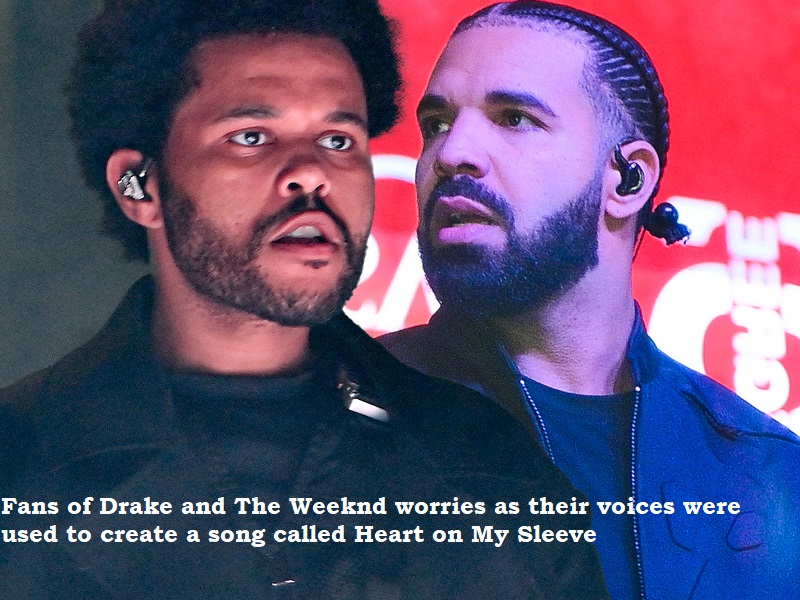
Artificial Intelligence (AI) is becoming more prevalent in our daily lives, and last week it caused concern for music fans when a song called ‘Heart on My Sleeve’ was created entirely by AI using the voices of Drake and The Weeknd. The song quickly went viral on YouTube, TikTok, and Spotify before being removed by Universal Music Group due to copyright infringement. This incident sparked a larger discussion about the future of art and artists in the face of AI-generated content.
The song, which received 15 million views on TikTok and was streamed 600,000 times on Spotify, was created using AI programming that was trained with the artists’ music. This incident raised concerns about the potential threat to artists and creativity posed by AI-generated content. While AI programming apps have been used to create different versions of hit songs, this was an original song that used the voices of popular artists.
Days after ‘Heart on My Sleeve’ was released, another song was created by the same TikTok user using the voices of Bad Bunny and Rihanna. The 1:07 long song, called ‘Por Qué,’ features a spot-on Bad Bunny vocal over a shuffling reggaeton beat along with Rihanna singing a few lines. The incident raised questions about the legal protections for artists in the face of AI-generated content.
Universal Music Group, which handles Drake and The Weeknd, stated that ‘platforms have a fundamental legal and ethical responsibility to prevent the use of their services in ways that harm artists.’ They added that the incident ‘begs the question as to which side of history all stakeholders in the music ecosystem want to be on: the side of artists, fans and human creative expression, or on the side of deep fakes, fraud and denying artists their due compensation.’
The concept of AI plaguing the music industry and plagiarizing voices is a new one, and experts feel that there are no legal rules that can protect the artists’ community. New laws on copyright need to be created to make creativity and artists AI-safe. UMG, which controls about a third of the global music market, reportedly is asking streaming companies to cut off access to their music catalogue for developers using it to train AI technology.
Recording labels and artists are relying on fans and their loyalty towards their favorite artists to curb the popularity of such music, but this seems like a myopic thought with the increase in freely available AI-generated programs. Canadian singer Grimes has said that she would treat an AI hit using her voice as she would collaborate with any artist, offering to split 50 percent royalties on any successful AI-generated song that uses her voice. Joe Russo, one half of the Russo Brothers, has said that in two years time, AI-generated films will be available for consumption.
The slow and steady infiltration of AI is putting the future of creativity at stake, and there is an urgent need to re-examine copyright laws and licensing of such apps. The legalities need to be changed to ensure that the artist and their creative process are not jeopardized.

Post Your Comments